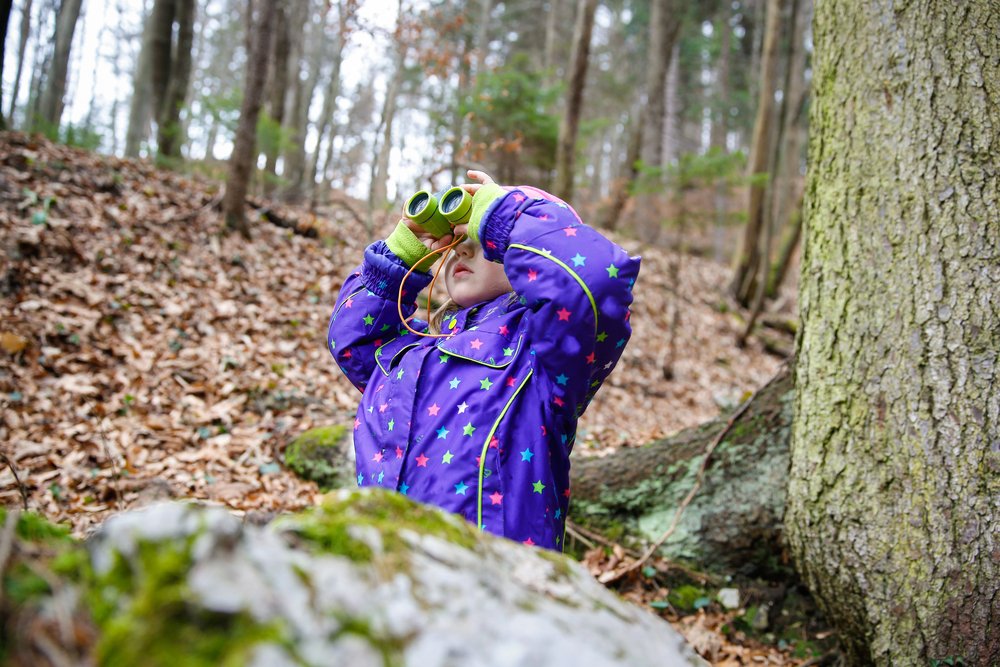Key points:
- Outdoor environments provide children with space and opportunities to engage in free play, develop their self-identity and independence, and explore their own interests while pushing their cognitive and physical limits.
- Spending time outdoors can provide physical, cognitive, sensorial, and emotional benefits for children. They can be physically active, expand their creativity and problem-solving skills, witness vivid colors and textures, and confront the unknown while having fun and spending time with caregivers.
- Getting involved in outdoor activities with children can create a rich learning environment and prepare them for a healthier lifestyle, while possibly inspiring future interests and hobbies.
Your little one was born with an innate curiosity for exploration. Their play can be flexible, changeable, and multifaceted, and their environment should reflect this criteria as well. Outdoor environments can fulfill these needs. In this article, we’ll talk about some of the benefits of playing outside and how you can take advantage of the wonders of nature to help your little one learn while having fun.
Outdoor environments provide space and opportunities that help children learn, push their limits, and take risks. In these places your little one will engage in free play, allowing them to develop their self-identity and independence, and explore their own interests. Plus, during this type of play, they will be able to learn more about themselves by testing their cognitive and physical limits. Try to find a space surrounded by nature to play with your little one today!
Some advantages and benefits of spending time outdoors:
- Physical: Outdoor activities allow your child to be physically active and fully express themselves. It can influence how they develop their physical confidence and competence. They will have enough room to try out climbing and shouting as loud as they can. They will be able to jump and run as fast as they want and, if you are a little away from the city, they will also breathe fresh air.
- Cognitive: Playing in nature will provide them with opportunities to use their problem-solving skills while expanding their creative exploration. In an outdoor space, your child can make connections between the factors they are observing, like the weather, ecology, growth, life cycles, etc. These observations will inspire them to ask questions and investigate further. Observing nature this way can contribute to their future math and science abilities and interests.
- Sensorial: They will have the chance to witness vivid colors, patterns, and textures, and use their senses in different contexts. Also, nature will offer a chance to manipulate different objects.
- Emotional: To be in front of the unknown can be a challenging experience for your little one. In nature, many unexpected events can occur. Maybe it starts raining and you both run back to your house. These sort of experiences can help your little one keep their mind curious, while also having fun and spending time with you. If they enjoy nature, someday it might even become a hobby, so you are also preparing them to have a healthier lifestyle.
Remember that in order for your child to thrive, they need a rich learning environment. Nature can provide this, but most importantly, you need to get involved in the process. Explore together!








